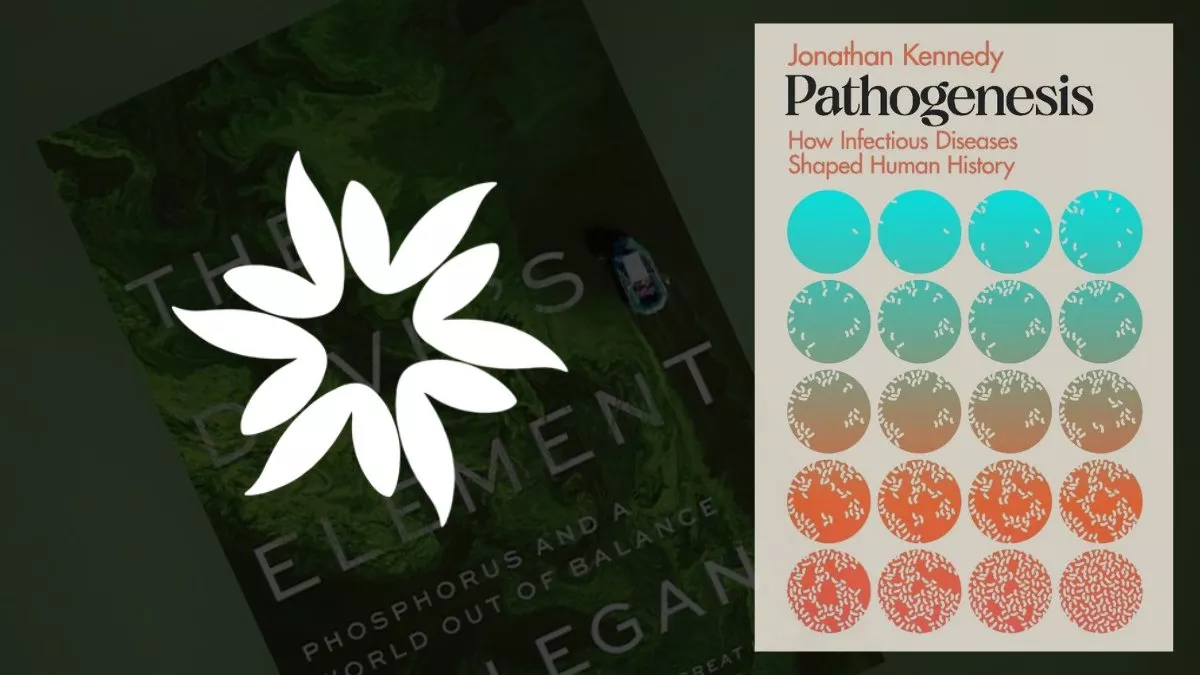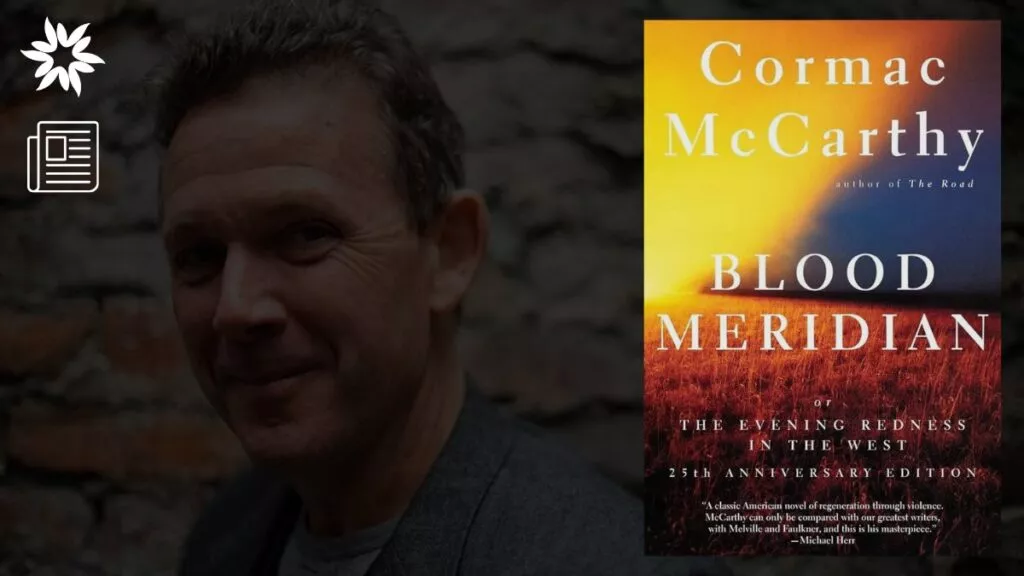Science books can open up incredible worlds of knowledge, taking you from the smallest microbes that changed human history to the biggest questions about the universe.
In this collection, we bring together some of the most thought-provoking and accessible reads of recent years.
But these books don’t just give you the facts—they share stories that make complicated topics engaging and easy to follow.
Key Takeaways
- If you're into history and biology, Pathogenesis by Jonathan Kennedy provides a fascinating look at how germs and diseases have shaped human history, from the extinction of Neanderthals to the rise of major religions and modern capitalism.
- For those who love data and critical thinking, Tim Harford’s How to Make the World Add Up is a must-read guide to understanding statistics and avoiding common biases, perfect for navigating today's data-driven world.
- If you're curious about the universe, Harry Cliff’s How to Make an Apple Pie from Scratch offers an accessible journey through particle physics, the Big Bang, and the building blocks of matter, with humor and clarity.
1. Pathogenesis: How Germs Made History by Jonathan Kennedy (2024)
In Pathogenesis, one of the best new science books, Jonathan Kennedy dives into the surprising role of germs and diseases in shaping human history.
It’s not just people who have influenced the course of civilization—germs have also been major players.
Kennedy takes us on a journey through time, exploring how diseases shaped human history. He shows how illnesses contributed to events like the disappearance of Neanderthals, the rise of major religions such as Christianity and Islam, and even the spread of capitalism.
Interestingly enough, the book also examines how pandemics, from the Black Death to COVID-19, have sparked major societal changes.
It’s a fascinating reminder of how tiny microbes can greatly affect our world.
Kennedy pulls from a wide range of research, giving us a humbling perspective on how vulnerable we are to the microscopic world.
2. The Devil’s Element: Phosphorus and a World Out of Balance by Dan Egan (2023)
In The Devil’s Element, Dan Egan discusses phosphorus, a chemical that is super important for life but also causes big environmental problems because of how humans use it.
Phosphorus is important for DNA and farming, especially for fertilizers. But the book shows how we’ve messed up its natural recycling system.
In the past, phosphorus was cycled naturally, but now, with chemical fertilizers, we’ve created issues like toxic algae and dead zones in waterways.
Egan doesn’t just focus on environmental damage; he also discusses global politics, such as conflicts over places with big phosphorus reserves, such as the Western Sahara.
He warns that a shortage of phosphorus and its overuse could cause serious problems for food and ecosystems in the future.
3. How Far the Light Reaches: A Life in Ten Sea Creatures by Sabrina Imbler (2023)
In How Far the Light Reaches, Sabrina Imbler mixes marine biology with personal stories, using ten sea creatures to reflect on moments in her life.
It’s great as each chapter is about a different species, like jellyfish or whales, and she connects their unique traits to big ideas like identity and survival.
For example, she compares the comb jelly’s see-through, delicate body to her experiences of queerness and fitting into society.
The book is known for its poetic, relatable style, which makes these ocean animals feel more “human” while also showing off the fantastic variety of life underwater.
Imbler’s story is also about finding a sense of belonging and change, making it a fascinating read for anyone interested in the ocean or personal growth.
4. Starborn: How the Stars Made Us by Roberto Trotta (2023)
In Starborn, a theoretical physics professor, Roberto Trotta, takes us on a journey through how the stars have shaped human history and culture.
In fact, stars have played a big role in how civilizations developed.
Trotta discusses how ancient Egyptians and Polynesian explorers used the stars to keep time and navigate across vast distances.
He also dives into how astronomy helped spark modern science, with big names like Galileo and Copernicus laying the groundwork for the scientific method.
Trotta even imagines how early humans used the moon to track fertility cycles.
Something has to be said about his writing style—it’s reflective and full of wonder, showing just how connected we’ve always been to the cosmos.
5. Sentient: What Animals Reveal About Our Senses by Jackie Higgins (2021)
Sentient by Jackie Higgins is all about how animals sense the world in ways humans can barely imagine.
She looks fascinatingly at creatures like eagles with their incredible vision and octopuses with their amazing touch, which shows us how they interact with their surroundings.
In addition to focusing on the animals, Higgins uses their experiences to help us understand more about how our senses work.
She even questions the old idea that we have only five senses, suggesting that there might be many more ways to experience reality.
It’s an eye-opening book that makes you rethink how we perceive the world and how much we can learn by studying animals.
6. Stuff Matters: Exploring the Marvelous Materials That Shape Our Man-Made World by Mark Miodownik (2013)
In Stuff Matters, Mark Miodownik takes us on a fun and fascinating tour of the materials that make up the world around us.
Whether it’s steel, glass, plastic, or concrete, he explores the surprising properties of materials we usually don’t consider.
What makes this book stand out is how Miodownik brings these materials to life, almost like they’re characters in a story—steel is “tough,” while paper is “trustworthy.”
He also adds a personal touch by sharing stories from his own life, like how he became obsessed with steel after a childhood accident involving a razor blade.
The book covers some cool examples of how materials have changed industries, like how safety glass was invented after a car crash or how bioengineered materials helped when Miodownik tore a ligament.
His writing is playful and easy to follow, even when discussing science, making this a great read for science geeks and curious minds alike.
7. Rough Sleepers: Dr. Jim O’Connell’s Urgent Mission to Bring Healing to Homeless People by Tracy Kidder (2023)
In Rough Sleepers, Tracy Kidder tells the inspiring story of Dr. Jim O’Connell, who has spent decades providing medical care to Boston’s homeless community.
Kidder paints a heartfelt picture of O’Connell’s life and work, including how he started the Boston Health Care for the Homeless Program, which has helped thousands of homeless people.
The book highlights the struggles faced by the homeless and how O’Connell goes above and beyond to meet their medical needs—everything from simple checkups to major surgeries.
Along the way, he builds strong, trusting relationships with his patients.
Kidder celebrates O’Connell’s incredible mission and explores bigger issues like homelessness, health care, and inequality.
Undoubtedly, reading about one of society’s most overlooked groups is touching and eye-opening.
8. How to Make an Apple Pie from Scratch by Harry Cliff (2021)
In How to Make an Apple Pie from Scratch, Harry Cliff uses Carl Sagan’s famous quote—”If you want to make an apple pie from scratch, you must first invent the universe“—as the jumping-off point to explain how our universe works.
Cliff takes us on a journey from the Big Bang all the way to atoms and the stuff that makes up matter.
Along the way, he dives into topics like particle physics, antimatter, and how stars form.
He even tours major science sites, such as CERN’s Large Hadron Collider and Italy’s Gran Sasso lab.
But don’t worry—Cliff keeps things light and fun with easy-to-understand explanations and clever metaphors, so you don’t need a PhD to follow along.
He perfectly blends humor and science, making this a fascinating read for anyone curious about how everything—from stars to apple pies—came to be.
9. Science Fictions: Exposing Fraud, Bias, Negligence, and Hype in Science by Stuart Ritchie (2020)
In Science Fictions, Stuart Ritchie pulls back the curtain on some of the problems in scientific research, like fraud, bias, and the pressure to publish flashy results.
Ritchie, a psychologist, takes a hard look at how things like the race for funding and fame can sometimes lead scientists to cut corners.
He discusses infamous cases of research misconduct and more common problems, such as selective reporting and p-hacking, which can twist results.
But it’s not all doom and gloom—Ritchie also suggests ways science can improve, like improving transparency and making it easier to replicate studies.
This book is a real eye-opener and an important reminder of why honesty and rigor matter in science.
For anyone curious, this is a must-read if you’re interested in how science can sometimes go off the rails.
10. How to Make the World Add Up: Ten Rules for Thinking Differently About Numbers by Tim Harford (2020)
In How to Make the World Add Up, Tim Harford gives us a handy guide on how to make sense of numbers in a world where data is often twisted or misused.
He breaks down the importance of understanding statistics. On top of that, he offers ten simple rules to help us avoid falling for common traps and biases when dealing with data.
Harford shows how numbers can shape our views on politics, the media, and even our personal beliefs.
With great stories and practical examples, he makes the world of statistics easy to grasp, even if you’re not a math person.
In today’s world, this book is super relevant, as we’re constantly bombarded with data on social media and in the news, helping us to spot when something doesn’t quite add up.
Expand Your World with These Must-Read Science Books!
So, there you have it! Why not pick up one of these great reads today?
Whether you’re a science nerd or just curious about how the world works, these books are packed with insights, fascinating stories, and ideas that will stay with you long after you turn the last page.
So go ahead, grab one, and start exploring the wonders of science!








